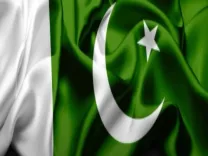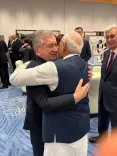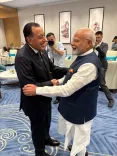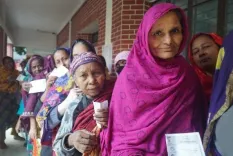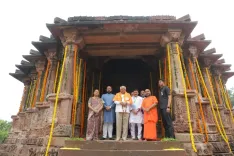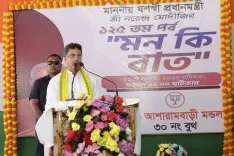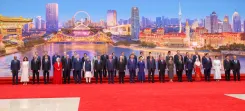How Did PM Modi and Nepal's PM Oli Strengthen Their Special Ties?
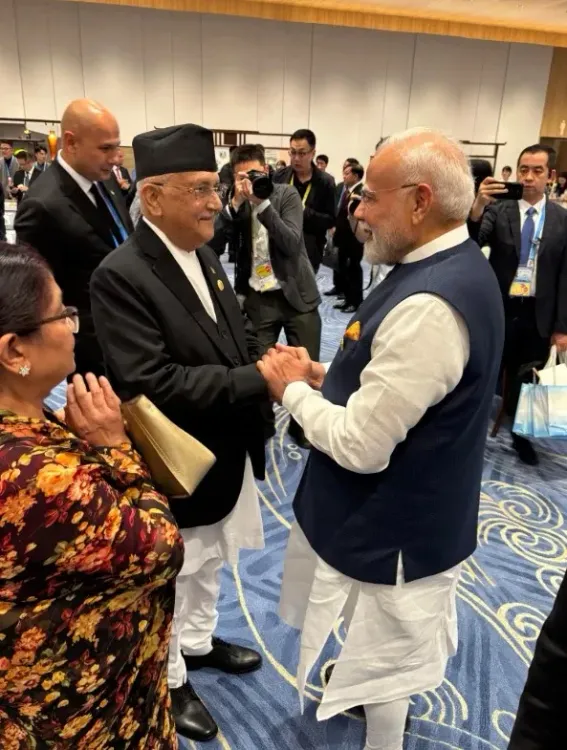
Synopsis
Key Takeaways
- Narendra Modi and K.P. Sharma Oli met at the SCO Summit.
- The ties between India and Nepal are described as deep-rooted.
- Previous meetings occurred during the BIMSTEC Summit.
- PM Modi also engaged with leaders from Myanmar and China.
- Focus on bilateral cooperation among nations.
Tianjin, Aug 31 (NationPress) Prime Minister Narendra Modi engaged with his Nepalese counterpart, K.P. Sharma Oli, during the Shanghai Cooperation Organisation (SCO) Summit in China's Tianjin on Sunday. He emphasized that the relationship between the two nations is deep-rooted and exceptionally special.
In a post on X, PM Modi expressed his delight in meeting PM Oli, stating, "Thrilled to meet Nepal PM Mr. KP Oli in Tianjin. The relationship between India and Nepal is deep-rooted and very special." The last time the leaders convened was at the BIMSTEC Summit in Bangkok back in April.
Earlier that day, PM Modi had a discussion with Senior General Min Aung Hlaing, Chairman of the State Security and Peace Commission of Myanmar, where they evaluated India-Myanmar relations and explored future collaboration across various sectors.
According to a statement from the Ministry of External Affairs (MEA), spokesperson Randhir Jaiswal noted, "PM Modi held discussions with Senior General Min Aung Hlaing on the sidelines of the SCO Summit. The leaders reviewed ties and discussed pathways for cooperation in trade, development, defense, security, and border management. PM reiterated India’s commitment to assist Myanmar’s developmental aspirations."
Additionally, PM Modi met with Chinese President Xi Jinping in Tianjin, where both leaders acknowledged the necessity of maintaining peace and stability in border regions, reaffirming their dedication to collaboration grounded in mutual respect.
PM Modi noted on X, "Had a productive meeting with President Xi Jinping in Tianjin. We reflected on the positive advancements in India-China relations since our prior meeting in Kazan. We agreed on the critical nature of preserving peace in border areas."
The Prime Minister also had discussions with Cai Qi, a member of the Politburo Standing Committee, focusing on economic, political, and cultural exchanges between India and China.
Modi arrived in Tianjin on Saturday for the two-day SCO Summit after concluding his trip to Tokyo, where he was warmly welcomed at the Binhai International Airport.

